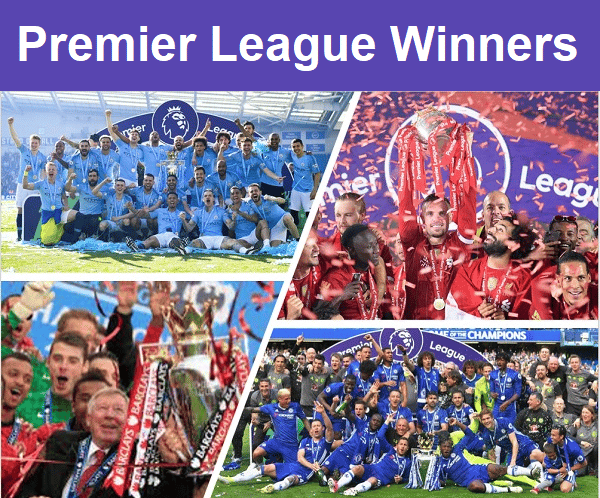
The Deep Ties Between Football and the Gambling Industry in the UK
My Football Facts ⇒ Articles
By Jonathan Lewis | 8th NOV 2021
In recent times, it has become more and more clear how entrenched the link between the gambling industry and the Premier League. New betting sites are still appearing at home and abroad, with the latter significantly increasing their marketing presence and ties to Premier League clubs in recent years. Many betting operators are using sponsorship and advertising to their advantage, whether that be on our television screens, online, on social media, pitchside, or even on the front of the team’s shirts.
The betting companies’ logos appearing on shirts may be set to disappear however, as there is government legislation in the works in the UK to remove them from the game. However, campaigners say that while this is a positive step in the right direction, far more needs to be done to tackle the problem of gambling’s deep ties to football.
Why betting operators may no longer appear on the front of team’s shirts
In September 2021, The Daily Mail broke the story that the government is due to publish a white paper in the winter outlawing betting companies appearing as shirt sponsors. Currently there are nine Premier League clubs with these sponsorship deals in place, and a further six clubs with these sponsorships playing in the Championship. The beginning of the 2023-24 season is the targeted date for the new law to be introduced, giving the clubs enough time to seek out new sponsorship deals.
This white paper will be part of the government’s wider plans to tackle problem gambling in the UK, starting with a review into the 2005 Gambling Act, which they say is no longer fit for purpose in the digital age. The review, which was launched by the Department for Digital, Culture, Media and Sport (DCMS) in December 2020, is looking into a series of changes in legislation on top of the shirt sponsorship ruling. A spokesperson from the DCMS didn’t commit to promising anything however, saying:
“We are currently undertaking a comprehensive review of our gambling laws, including advertising and marketing, to make sure they are fit for the digital age. We are determined to tackle problem gambling in all its forms and the work will build upon our strong track record of introducing measures to protect those at risk. No decisions have been taken.”
Labour MP Carolyn Harris, who chairs the all parliamentary group for gambling-related harm (GRH APPG) said: “Banning front-of-shirt ads is of course the right thing to do, but it just scratches the surface. We’re bombarded by gambling adverts and that has to stop. Adverts should be completely banned to protect children and prevent harm.”
As Ms Harris points out, gambling’s ties to football in the UK go further than shirt sponsorships. Every single Premier League club except Norwich has a partnership with a betting operator in some form, and the English Football League (EFL), which runs the second, third and fourth tier of English football are sponsored by Sky Bet and has many other ties to gambling on top of that.
What would removing all gambling advertising from football in the UK mean?
The EFLs Chief Executive, Trevor Birch is concerned about the possibility of removing all gambling advertising from football in the UK due to the huge potential loss in revenue, particularly after the COVID-19 pandemic hit clubs in the lower leagues so hard, saying it would have a “substantial impact” on the finances of Football League clubs, and called it “concerning”.
He said: “We’re concerned because finance and sponsorship from the betting sector is an important part of the financing of the EFL. The figure we would put on it is £40m. If that particular avenue is closed off to us it will have a substantial impact on our finances.
“Life goes on and if it is a short-term hit we have to find an alternative. Who knows what else is out there in terms of sponsorship that might fill the gap? But it’s also the case that the gambling industry does make an awful lot of money from football. So in some shape or form we think that they should be making some kind of contribution. It could be in a different form to shirt sponsorship.”
There have been multiple campaigns which have stated their purpose is to shut down the gambling industry’s close ties with football in England. One group that has been extremely prominent in this conversation is The Big Step, and they maintain that banning shirt sponsors would not be enough. The founder of the Big Step Campaign James Grimes said: “A shirt sponsorship ban would be a welcome and significant acceptance of the harm caused by gambling advertising in football. But this single measure would be relatively redundant if adverts are still permitted pitchside, during match broadcasts and online.”
The Big Step claims that a gambling brand is visible for up to 89% of each episode of Match of the Day, whether that be on shirts, pitchside or elsewhere. Furthermore, they quoted a study conducted by researchers at Ipsos Mori and the University of Stirling, which found that “96% of people aged between 15 and 24 had seen gambling marketing messages in the last month and were more likely to place a bet as a result.”
The ‘Whistle to Whistle’ Ban
There have already been some changes to gambling advertising in the UK, with a ban on any gambling adverts appearing between the first and final whistle of a televised sports match in the UK implemented in August 2019, named the ‘whistle to whistle’ ban. The Betting and Gaming council (BGC) has said the ban has been extremely successful, pointing to research done by media researchers Enders Analysis, which found that there has been a 97% drop in the number of gambling ads seen by four to 17-year-olds during the whistle-to-whistle period since the ban was introduced.
BGC chief executive Michael Dugher said: “The success of the whistle to whistle ban is a clear example of that commitment and I’m pleased at how effective it has been during its first year in operation. I am determined that the BGC will lead a race to the top in terms of industry standards and we want to drive more changes in the future.”
Jonathan Lewis is an MFF sports writer




